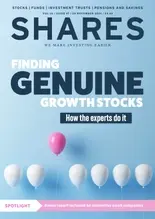
In mid-September the Financial Reporting Council (FRC) is expected to reveal its final proposals for how companies should report on their ability to operate without going bust.
Although on the face of it a relatively arcane debate about the definition of the term ?going concern?, this could have significant implications for investors. Compelling companies to take a more long-term view of the risks facing their business and communicating these more clearly to shareholders, it could prevent the kind of losses endured by investors in disasters such as building services business Connaught which went bust back in 2010.
In the aftermath of the 2007/8 financial crisis, the FRC brought in Liberal Democrat peer and former KPMG and Aviva (AV.) chairman Lord Sharman to get to grips with ?going concern? - a principle in accounting that assumes a company will continue to operate in the foreseeable future (12 months).
In a 2012 report Sharman recommended getting directors to consider a longer period and look at the wider environment. Essentially requiring companies to produce a ?common sense? definition of ?going concern? which could be more easily understood by investors.
The FRC has been struggling against opposition at the PLC level to incorporate changes into its UK Corporate Governance Code update and with three public consultations already completed the regulator is expected to go live with the reform in October.
The compromises required to win directors over have prompted concerns from investors. A group which includes the UK Shareholders? Association, Local Authority Pension Fund Forum and a number of institutions like Threadneedle Investment and Legal & General Investment Management, has sent its thoughts to the FRC. Its proposed ?stewardship going concern statement? runs as follows:
?The directors should confirm in the annual report that they have carried out a robust assessment of the state of affairs of the company and any risks, including to its solvency and liquidity that would threaten its viability. They should state whether, in their opinion, the company will be able to meet its liabilities as they fall due and continue in operation for the foreseeable future, explaining any supporting assumptions and risks or material uncertainties relevant to that and how they are being managed.? Shares will be interested to note how close the final FRC proposal is to this idea.





